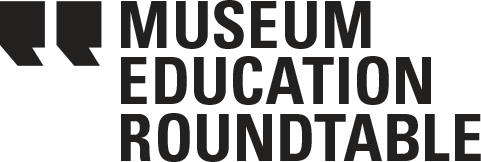Activist Pedagogies in Museum Studies and Practice
As a complement to JME 47.4 Activist Pedagogies in Museum Studies and Practice, we are pleased to share this blog post.
Dictionary.com describes lifelong learning as, “the provision or use of both formal and informal learning opportunities throughout people’s lives in order to foster the continuous development and improvement of the knowledge and skills needed for employment and personal fulfillment.”[1] In Lifelong Anti-Oppression Learning for Museum Professionals, an article in issue 47.4 of the Journal of Museum Education, Brayden Paynter & Linda Norris write that to be a lifelong learner, an educator must have awareness of self. The MER board, which consists largely of museum educators, wanted to take time in this blog post to reflect on Brayden & Linda’s writing and to think about their call to action.
For us as educators, to be lifelong learners means to know ourselves as we evolve as educators and as the world around us changes. Museum educators are at the forefront of experiencing how museums are being called to action, beyond the traditional neutral stance of museums, as we continue to witness racial injustices, climate change, and political and social changes at a global level. This means that museum educators now face the challenge of creating culturally responsive and anti-oppressive programming. As such, they could benefit greatly from educational frameworks which build in the awareness of lifelong anti-oppression learning.
Systems of oppression permeate our language, influence how we behave and conduct ourselves in our society, and are based on what are seen as “norms” in our cultures. As educators, we continue to engage in the world, and are exposed to injustices which change our worldview — we thus need to have the necessary tools to become anti-oppression learners to create anti-oppression pedagogy. The article by Paynter & Norris (2022) is an effective call to action to all museum educators and to the institutions which prepare them. We must stay engaged as educators, we must lean in to being uncomfortable, and we must question injustice and recognize how it shows up in our institutions. When we question and when we are uncomfortable, we learn; and when we learn, we create changes. These changes are integral to the evolution of museum pedagogy as it allows us to effectively partner with the communities and visitors of our institutions.
This article asks museum educators: what are we doing to be lifelong anti-oppression learners and what more can be done? There is no set path for us to learn this. However, as the authors mention, there are limitless ways to be an anti-oppressive lifelong learner. It’s up to us to identify how we can best do it and just well, do it.
Braden Paynter & Linda Norris (2022) Lifelong Anti-Oppression Learning for Museum Professionals, Journal of Museum Education, 47:4, 428-441, DOI:10.1080/10598650.2022.2140555
[1] “Lifelong Learning.” Dictionary.com. https://www.dictionary.com/browse/lifelong-learning

